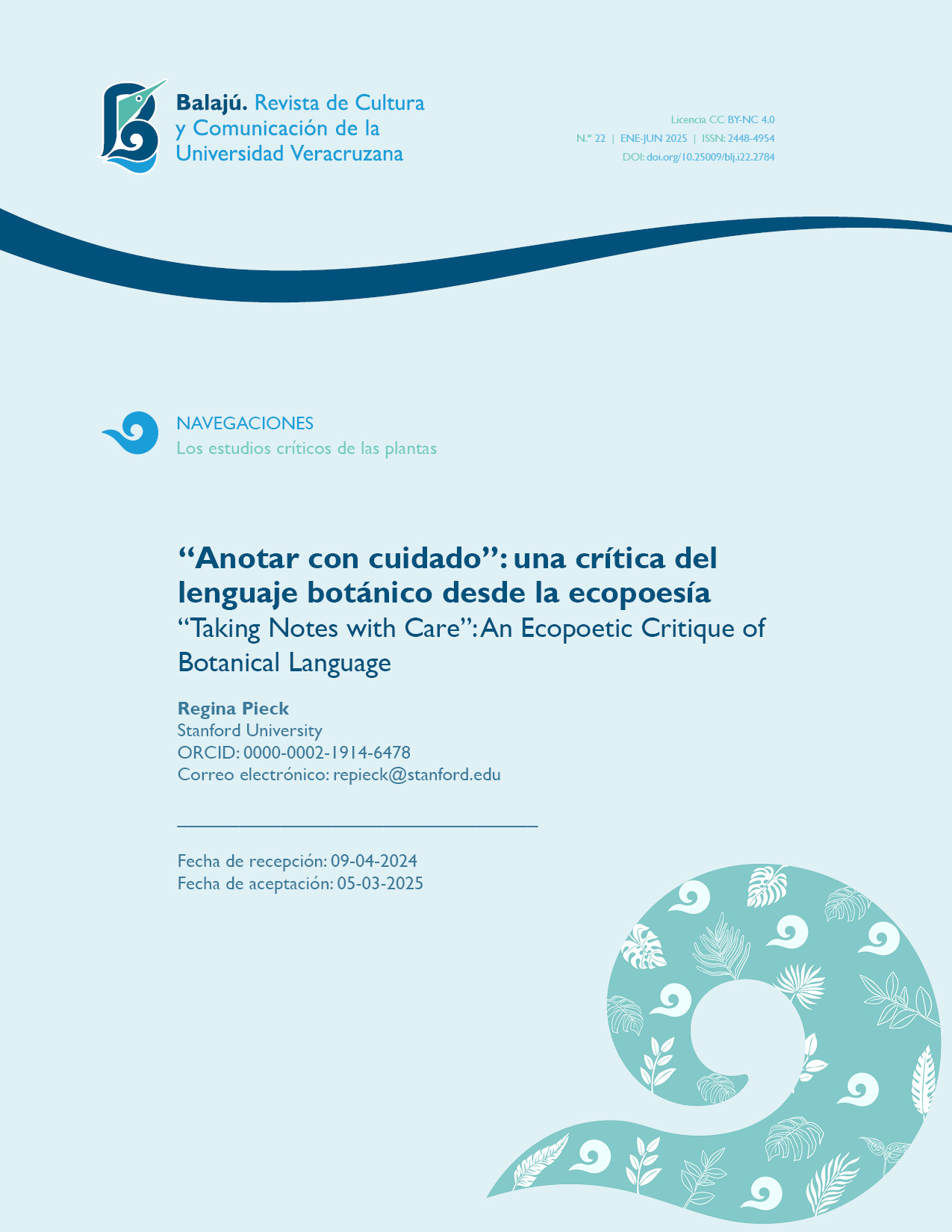Abstract
The study of plants and natural history during colonial times was part of an imperial apparatus that sought to “conquer” a continent through knowledge, as well as to use its resources to increase the empire’s economic and political power. The botanical language and taxonomy we use today remain imbued with this history of colonial violence and with a perspective that tends to commodify the nonhuman. In this article, I examine the contemporary work of Mexican poet Maricela Guerrero and Chicana poet María Meléndez to show how poetry can help us reimagine a language that has created a detrimental divide between the human and the nonhuman. I analyze the work of these poets along with the Codex de la Cruz Badiano to demonstrate how, since pre-Columbian times, Nahua culture has provided us with keys to translating plant life into human language within an ethics of care.
Keywords: poetry, plants, colonialism, ecopoetry, phytopoetics, Codex de la Cruz Badiano, María Meléndez, Maricela Guerrero

This work is licensed under a Creative Commons Attribution-NonCommercial 4.0 International License.


